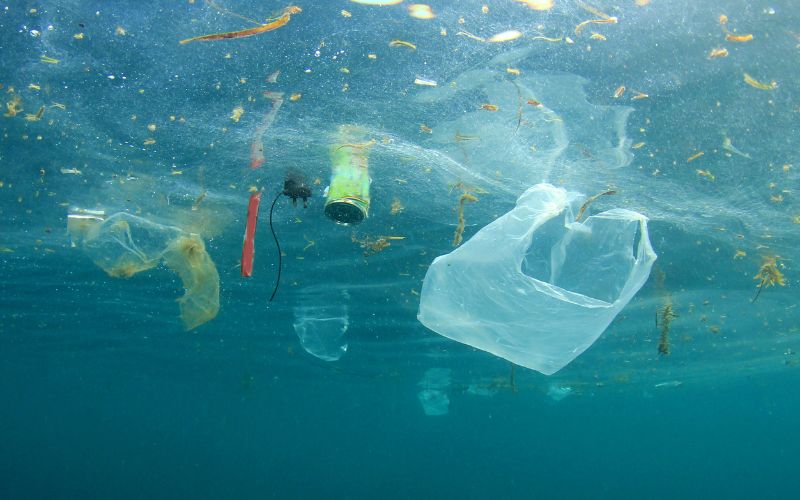The world’s oceans are in a state of crisis, with plastic pollution posing a significant threat to marine life, ecosystems, and human health. An estimated 8 million tons of plastic waste enter the oceans each year, leading to devastating consequences for wildlife and the environment. As the situation grows increasingly dire, it is crucial for individuals, communities, and governments to take action to combat this pressing issue. Here’s a look at the ocean’s plastic crisis and what we can do to help mitigate its impact.
Understanding the Ocean’s Plastic Crisis
Plastic pollution in the oceans takes many forms, including microplastics, which are tiny plastic particles less than 5mm in size. These particles result from the breakdown of larger plastic items and are found throughout the water column, in sediments, and even in the air. Marine life often mistakes plastic for food, leading to ingestion that can harm or kill animals and disrupt the food chain. Additionally, plastic pollution contributes to habitat destruction and poses health risks to humans who consume seafood contaminated with plastics.
What We Can Do
- Reduce Single-Use Plastics
One of the most effective ways to combat plastic pollution is to reduce our reliance on single-use plastics. By refusing items like plastic bags, straws, and disposable cutlery, we can significantly decrease the amount of plastic waste generated. Opting for reusable alternatives, such as cloth bags, metal straws, and glass containers, helps minimize plastic consumption. - Participate in Beach Clean-Ups
Engaging in beach clean-up events is a hands-on way to address plastic pollution. These activities not only help remove debris from shorelines but also raise awareness about the issue. Participating in or organizing clean-up events fosters a sense of community and encourages others to take action against plastic pollution. - Educate Others
Sharing knowledge about the ocean’s plastic crisis is crucial for inspiring change. Educate friends, family, and community members about the impacts of plastic pollution and practical steps they can take to reduce their plastic footprint. Host workshops, give presentations, or utilize social media to spread awareness and advocate for sustainable practices. - Support Sustainable Practices and Products
Choose to support companies and brands that prioritize sustainability and environmental responsibility. Look for products with minimal or eco-friendly packaging, and favor businesses that implement practices to reduce plastic waste. By voting with your wallet, you can encourage more companies to adopt sustainable practices. - Advocate for Policy Change
Advocacy plays a critical role in addressing plastic pollution at a larger scale. Support local, national, and international initiatives aimed at reducing plastic waste and protecting marine ecosystems. Contact elected representatives to express your concerns about plastic pollution and advocate for policies such as bans on single-use plastics, improved waste management systems, and enhanced recycling efforts. - Practice Responsible Waste Management
Properly disposing of plastic waste is essential for preventing it from entering the oceans. Make sure to recycle whenever possible and educate yourself about local recycling guidelines. Participate in community recycling programs and support initiatives that promote responsible waste management. - Reduce Microplastics in Personal Care Products
Many personal care products contain microplastics, which can contribute to ocean pollution. Look for products labeled “microbead-free” and opt for natural alternatives whenever possible. By choosing biodegradable and eco-friendly products, you can help reduce the flow of microplastics into the oceans. - Engage with Local Environmental Organizations
Connecting with local environmental groups can amplify your impact in combating plastic pollution. Many organizations focus on ocean conservation and provide opportunities for community members to get involved through volunteer work, education initiatives, and advocacy efforts. - Be Mindful of Your Consumption Habits
Practicing minimalism can help reduce plastic consumption. Before making a purchase, consider whether you truly need the item and its potential environmental impact. Focus on quality over quantity, and prioritize experiences over material possessions to naturally decrease plastic waste. - Stay Informed and Share Knowledge
Keeping up with developments in marine conservation and plastic pollution is crucial for effective advocacy. Read articles, watch documentaries, and follow organizations dedicated to ocean protection. Share what you learn with others to create a ripple effect of awareness and action.
Conclusion
The ocean’s plastic crisis is a complex and urgent issue that requires collective action from individuals, communities, and governments. By taking proactive steps to reduce plastic pollution and advocating for sustainable practices, we can protect marine ecosystems and preserve our oceans for future generations. Every action counts, and together, we can create a significant impact in the fight against plastic pollution and ensure a healthier planet for all.


